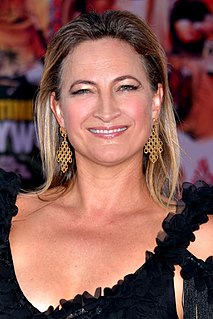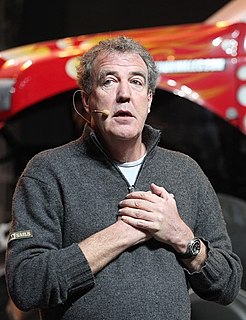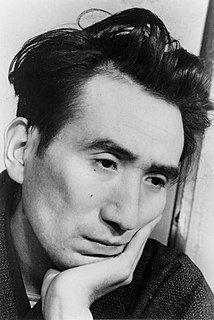A Quote by Joseph Campbell
The very cave you are afraid to enter turns out to be the source of what you are looking for.
Related Quotes
The cave you fear to enter holds the treasure you seek. Fear of the unknown is our greatest fear. Many of us would enter a tiger's lair before we would enter a dark cave. While caution is a useful instinct, we lose many opportunities and much of the adventure of life if we fail to support the curious explorer within us.
Freed from the sublimated form which was the very token of its irreconcilable dreams - a form which is the style, the language in which the story is told - sexuality turns into a vehicle for the bestsellers of oppression. ... This society turns everything it touches into a potential source of progress and of exploitation, of drudgery and satisfaction, of freedom and of oppression. Sexuality is no exception.
We're just afraid, period. Our fear is free-floating. We're afraid this isn't the right relationship or we're afraid it is. We're afraid they won't like us or we're afraid they will. We're afraid of failure or we're afraid of success. We're afraid of dying young or we're afraid of growing old. We're more afraid of life than we are of death.
Under Islamic precepts, men cannot enter the home of a woman who they don`t know, and so they need the women in this effort to enter homes where they`re - where they`re looking for possible women terrorists, women accomplices of Boko Haram, and trying to either disarm them or get them out of that movement.
Looking to the material world for the satisfaction of our inner needs is the source of much fear. All fear is, in essence, fear of the future. We are afraid of things that have not yet happened, but which if they did might bring us pain, suffering, or some other discomfort - or stand in the way of some future contentment. And we are afraid that circumstances that are already causing us displeasure may continue in the future.
I was afraid to board a streetcar because of the conductor; I was afraid to enter the Kabuki Theater for fear of the usherettes standing along the sides of the red-carpeted staircase at the main entrance; I was afraid to go into a restaurant because I was intimidated by the waiters furtively hovering behind me waiting for my plate to be emptied.
































